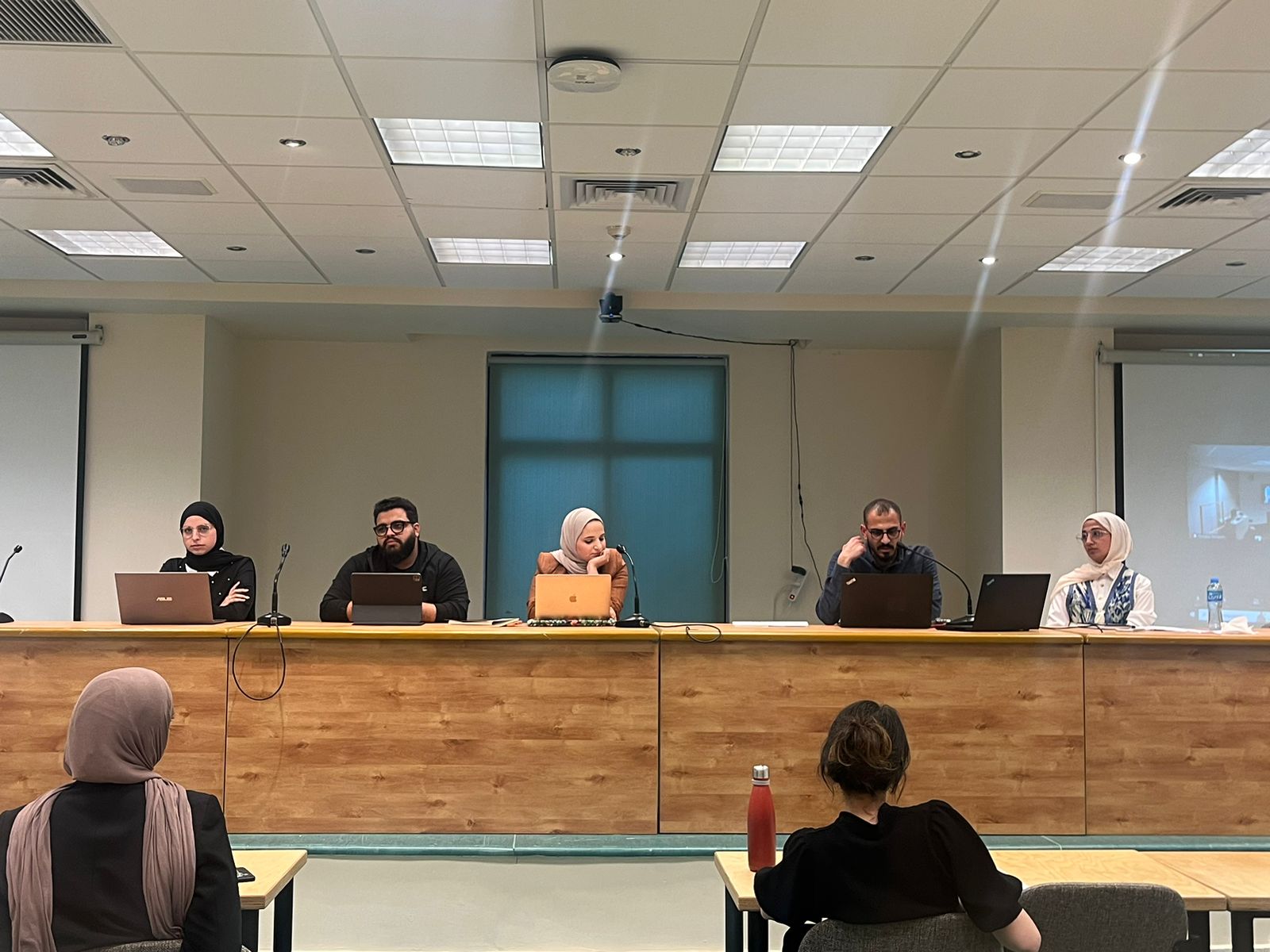On Prisoner's Day, April 17, 2024, Muwatin Institute for Democracy and Human Rights, in cooperation with the University of Antwerp in Belgium, held a seminar to mark the launch of the research project "Emancipatory Human Rights".
The project aims to examine ways to ensure that human rights are used exclusively for emancipatory purposes, and to examine the possibilities of immunizing human rights from colonial uses. In addition to conceptual development, the research project includes the preparation of policy briefs on related issues that discuss the impact of the colonial condition on the state of human rights in Palestine.
In the opening remarks, Vice President of Community Affairs at Birzeit University Dr. Ala Al-Azzeh delivered the welcoming speech. Dr. Koen de Feyter, professor of Public International Law and spokesperson of the research group on Law and Development at the University if Antwerp, and Dr. Mudar Kassis, Director of the Muwatin Institute for Democracy and Human Rights at Birzeit University, emphasized the relevance of the research project, its context, and its connection to the research agendas of Muwatin Institute and the Antwerp research team. They stressed the importance of the idea of localizing human rights without giving up their universality and internationalism, and that Palestinian youth are the central component in the process of formulating these rights from the perspective of the needs of Palestinian society.
Dr. George Giacaman, , faculty member of the Department of Philosophy and Cultural Studies, moderated the first session, titled "Positioning Palestine within the Growing Challenges of Human Rights". The first contribution was by Dr. Koen de Feyter under the title "International Law and Gaza”. He spoke about initiatives by a number of states to hold the occupying state accountable for the crime of genocide in the Gaza Strip, as well as the limitations of international law in the context of politics. The second contribution was presented by Dr. Mudar Kassis, titled "The Palestinian Question in the Current International Context.” It addressed the requirements for emancipation of the Palestinian people and their right to exercise self-determination. Emphasized that a right cannot be subject to conditions, Dr. Kassis argued that conditioning rights means subjecting them to an external will, which contradicts the principles of freedom and self-determination. He also pointed out the importance of restoring an ethical perspective to the practice of international law if the world wants to preserve a future existence.
Moderated by Assistant Vice President for Community Affairs and faculty member of Muwatin Institute, Jamil Salem, the second session was titled "Snapshots of Research Project rubrics." It included three interventions; the first was presented by Maha Abdallah, teaching assistant and PhD researcher at the Faculty of Law, University of Antwerp, titled "The Fusion of Violence and Racism in Palestine: Gender Manifestations During the War on Gaza" where she discussed the role of gender-based violence in maximizing the devastating impact on Palestinians in the Gaza Strip in particular. The second contribution was presented by Dana Farraj, assistant researcher at the Muwatin Institute for Democracy and Human Rights and a PhD candidate in International Law at Burgundy University in France, titled "Popular Emancipatory Education in the Colonial Condition". She focused on the importance of thinking under exceptional circumstances, such as colonialism and the presence of hegemonic authorities, with non-formal education tools, such as emancipatory popular education, and discussed its various forms. The third and final contribution of this session was presented by Sahar Francis, general director of Addameer Prisoner Support and Human Rights Association and a human rights lawyer, titled "The Human Rights-Based Approach in the Colonial Context.” In her contribution, she discussed the importance of producing human rights knowledge and employing it in the Palestinian liberation project along with other mechanisms available under international law.
The symposium concluded with a roundtable facilitated by Ahmad Abu Zayyad, on youth initiatives. The first speaker, Asil Hussein student at the MA program in Democracy and Human Rights program and a research assistant at the Dignity Initiative, presented “Made in Birzeit – Organic Thinking;” the second speaker, AlAziz Atef, a student at the MA program in Critical Cultural Studies, presented titled “My experience in youth groups: Naht and Amal Dunqal's initiatives;” the third contribution was presented by Salam AlBotmeh, student at the MA program in Democracy and Human Rights “Prospects of the Human Rights Factory;” and the last contribution "Youth Orientations to Engage in the Process of Change" was presented by Yasmine Jubeh, student at the MA program in Democracy and Human Rights and research assistant at Muwatin Institute.
The roundtable included a discussion on the previous “Idea Factory” initiative, the students’ experiences with Muwatin’s initiatives, in addition to an introduction on the “Human Rights Factory” initiative, and youth as an active force in the process of social change, and how their will to engage in the work of change is shaped.

